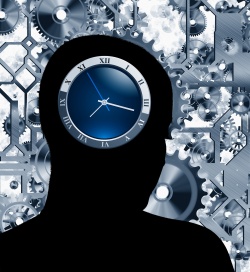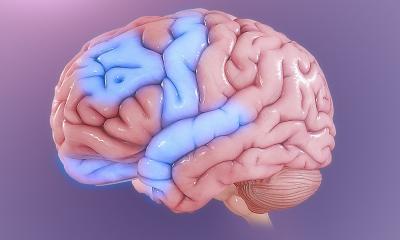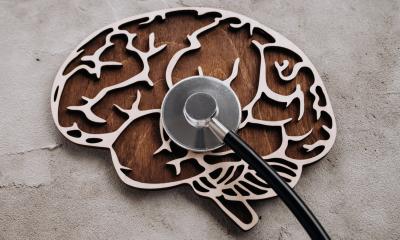Schizophrenia
When the internal clock is out of order
Persons suffering from schizophrenia have a different perception of time than healthy individuals, a new study finds. There is far more variation in the way that a time interval is perceived by people with schizophrenic disorders than by those who do not have the condition. Patients with schizophrenia are also less precise when it comes to judging the temporal order of events.

These are the conclusions drawn from the results of a meta-analysis undertaken by psychologists at Johannes Gutenberg University Mainz (JGU), for which they evaluated 68 international publications from the past 65 years and compared the data of 957 schizophrenia patients with that of 1,060 healthy control persons.
Although the clinical syndrome known as schizophrenia is already widely recognized, the connection between the cognitive and neurological impairments on the one hand and the patient's symptoms on the other remains unclear. One theory that is current among schizophrenia researchers is that errors in temporal information processing could underlie the disorder and give rise to the known symptoms, such as the hallucinations experienced by patients who might, for instance hear voices, and the disconnection between actions and thoughts. Psychologists at Johannes Gutenberg University Mainz (JGU) investigated whether there was evidence in support of the hypothesis that there is disruption of time perception and temporal processing in schizophrenia patients. In their meta-analysis they evaluated 68 international publications from the past 65 years and compared the data of 957 schizophrenia patients with that of 1,060 healthy control persons.
For the purposes of the meta-analysis undertaken in Mainz, the factor of 'time perception' was assessed on the basis on how subjects judged the duration of a particular time interval. For instance, subjects were asked to estimate the number of seconds a square was visible on a computer screen. 'Temporal processing' on the other hand, was evaluated in terms of a perceived sequence of events; so, for example, subjects were asked to report whether a blue square was displayed prior to a red square or vice versa.
Time perception is seriously impaired
According to the results of this psychological study, the precision with which people with schizophrenia can perceive time and process temporal sequences is seriously impaired. In other words, their evaluations of time-related aspects were much more variable in comparison with those of the control group of healthy subjects. When, for example, subjects were asked 20 times in succession to estimate the duration for which a square—displayed for exactly one second in each case—appeared on the screen, the estimates given by patients with schizophrenia exhibited a much higher level of variability than those of the control group. However, the mean value, i.e., the average duration estimate in seconds, was the same in both groups.
These results show that the internal clock in patients suffering from schizophrenia does not necessarily run faster or slower than that in healthy individuals, but rather that it does not run at a constant speed. Thönes and Oberfeld-Twistel conclude that the clock ticks irregularly. Concerning the problems when it comes to perceiving chronological sequences, these could also be caused by fundamental cognitive deficits in patients with schizophrenia and may not be related to the general way they perceive time. "The assumption nowadays is that schizophrenia disrupts processing operations so that the transfer of information in the brain is slightly out of rhythm," explained Oberfeld-Twistel. This might be the reason why there is a failure to correctly recognize simple chronological sequences.
Source: Johannes Gutenberg-Universität Mainz
12.07.2017





